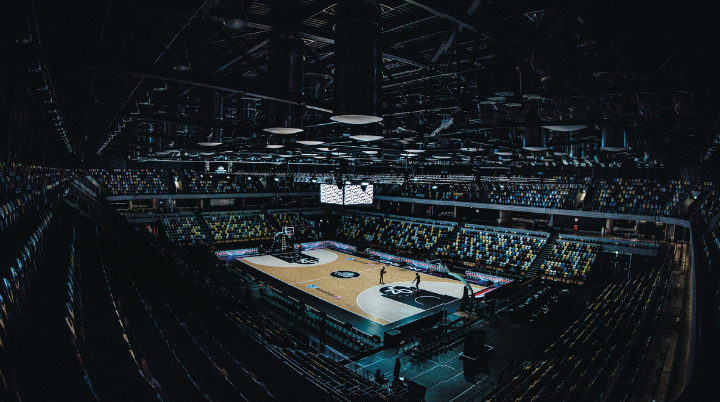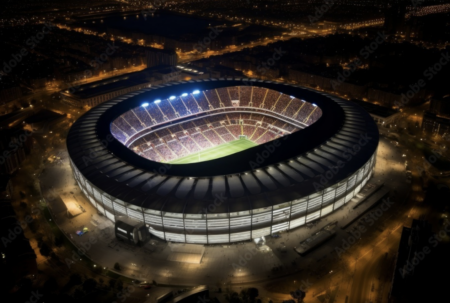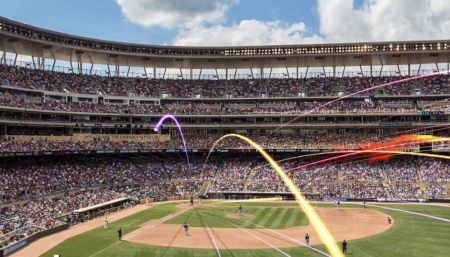Words by Benedict Evans
Stadia took a trip to the home of the London Lions to discuss the basketball team’s experience of, and future within, the intimate setting of the Copper Box Arena – and find out how it is delivering a new legacy born of the 2012 Olympics.
On a rain-drenched Wednesday evening, hundreds of fans stream into the Copper Box Arena to watch the London Lions continue their campaign for European glory. Shrouded in the intimacy of a low-light roof rig, and with nearly 2,500 fans in attendance, the excitement on-court is immediately palpable.
“It’s nothing short of remarkable,” says head coach Ryan Schmidt. “You look back not even a year ago – let alone two or three – and there were 500, 600 people in the stands.” Attendance numbers often rank in the thousands now.
Granted the Copper Box Arena only seats a maximum of 7,500, but this is a big improvement for London’s only professional basketball club.
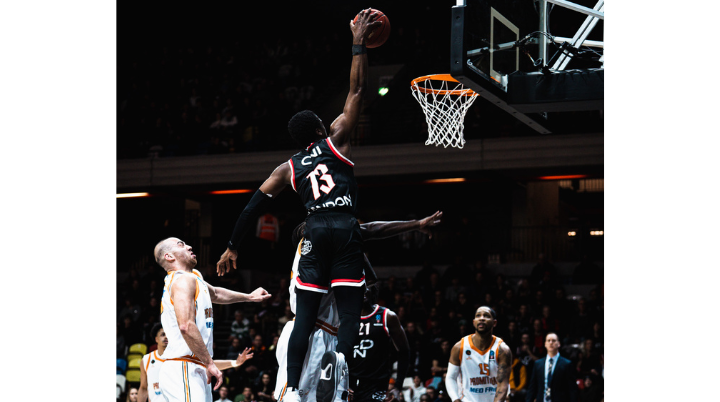
Thousands in the stands and a growing fanbase was not always on the cards however, and the club’s struggles in recent years are emblematic of ongoing contentions regarding the ‘Olympic legacy’ of the Lower Lea Valley, the region in which the Olympic Park was constructed.
A 2005 report to the Secretary of State for Trade and Industry listed it as an area of “environmental, economic and social degradation,” and long-standing interest in its regeneration played a significant role in London’s successful bid to host the 2012 Summer Olympic Games.
Its present reality is such that thousands of low-income households have been re-homed to make way for expensive high-rise developments. Hundreds of small and medium-sized enterprises (SMEs) also faced the same fate, after a Compulsory Purchase Order (CPO) for 254 hectares of land – handed down by the London Development Agency (LDA) – was conducted between 2005-2007.
Among other concerns, these actions have come under scrutiny by those accusing the LDA and London Legacy Development Corporation (LLDC) of social cleansing.
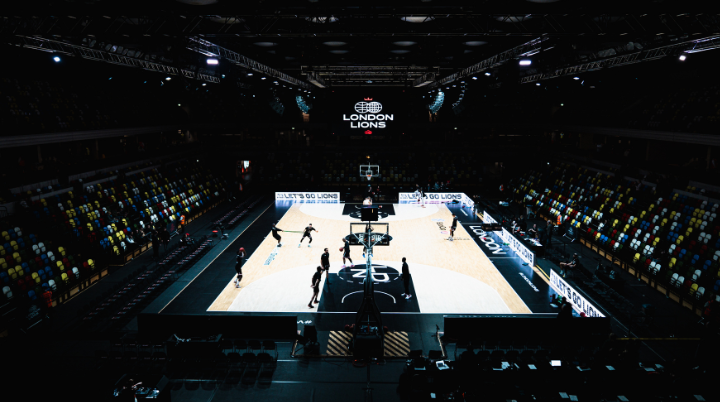
But today, with commercial activities range from vinyl record manufacture to smokehouses, and a tight-knit community that includes co-operative housing centred around these small-scale industries, the realities appear to be beginning to contradict prevailing sentiments regarding the area’s ‘degraded’ nature.
Pride in a new legacy
Nevertheless, for some, the Copper Box Arena remains a symbol of the contentious legacy, which the London Lions recognise and are keen to grow beyond.
“The location of the Copper Box Arena works in our favour,” says marketing director Jerome Quartey. “Everyone knows us because of the Olympic Park legacy, but we’re not tied to that legacy. We’re trying to build our own brand, to be recognised as the London Lions, an elite basketball team in Europe, playing in London.”
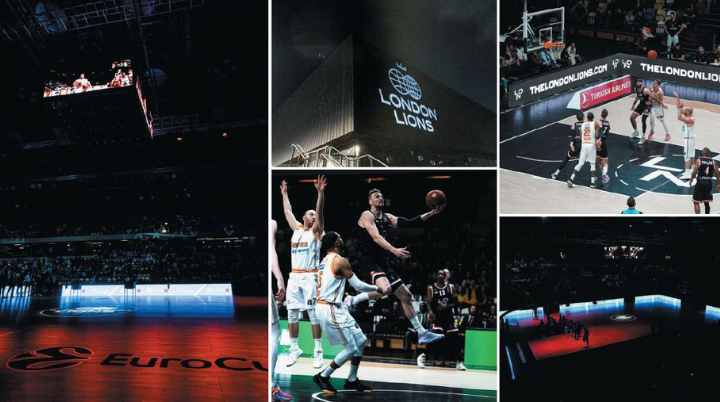
The organisation has taken important steps to achieve this distinction, embedding itself within the community through various means. This has included the funding of a study into the disconnect between basketball’s governing bodies and community-led grassroots initiatives, especially for ethnic minorities.
Alongside several community projects, and the establishment of a community interest company (CIC), the effects of these revitalization efforts have grown an engaged, consistent audience, and a strong brand identity.
This is most evident when speaking with members of the crowd, a younger, more socially diverse group than in years prior. “It’s loud, right? People are on their feet, especially in those tense last moments of the quarter,” one excited fan tells Stadia.
Another heckles the scoreboard manager while the crowd awaits a pivotal foul ruling, cheers emanating as the decision goes to the Lions.
The mane attraction
Seeing this kind of support is energising for Schmidt, who has been head coach for less than a year. “It’s fun to see the game growing and fans get behind our team” he says. “They feed off that energy. It’s an intimate setting, and it could be one of the best in Europe.”
Quartey echoes Schmidt’s sentiment, noting the arena’s accessible design as key to fan engagement and retention. “The concourse is quite open at the top, so when people come in, they can quickly observe what’s going on. It’s very easy to get around,” notes Quartey.
Developed specifically for the Olympics, the Copper Box Arena has played host to a diverse array of user groups, with sports ranging from handball to wheelchair rugby. It can also be adapted for conferences, trade shows, and community events.
But juggling the arena’s various user groups, and the international regulations of the EuroCup, is a logistical challenge for Laura Hillyard, who works in a consultant position as head of game night for the London Lions.
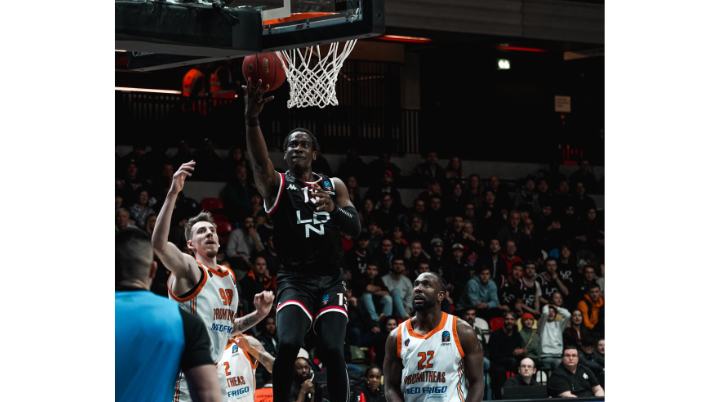
Hillyard is hoping that, when the new tenancy for the Copper Box Arena is announced in September, it will go to 777 Partners, a Miami-based investment firm partnered with the British Basketball League (BBL), over current tenants Greenwich Leisure Limited.
This is because, currently, adapting the venue for different uses is challenging. “The logistics of moving in floor, backstop units, LED boards, production, the roof rig are significant,” says Hillyard. But 777 Partners promise Copper Box a future as a basketball-first venue.
Though stressful, Hillyard nonetheless believes the competition for the tenancy is a boon to the future development of the entire operation; it is only because of the arena’s growing importance to London basketball, and indeed to British sport, that such competition for investment has arisen.
“I think the spark of energy brought to the arena by Lions game nights could reignite the progress of the Olympic legacy. We’re pushing capacity every single week, and that is a great showcase to other sports and other users,” says Hillyard.
Having lived and breathed the Lions gameday for the last 16 months, Hillyard says the immense commercial and communal potential of the Copper Box Arena is only starting to be unlocked:
“If I can take anything away from my time with the Lions it’s that we can make this happen, time and time again. We can increase production, and everything is possible in this arena to make it look phenomenal,” she says.
Any expansion of the gameday infrastructure will invariably rest on the shoulders of excellent stakeholder relations across concessions, broadcasting, marketing, and management.
The professionalism and quality with which these variables are currently delivered offers much hope for the continued success of the Copper Box Arena.
The Lions are currently enjoying an upward trajectory, one which appears to be the dawn of a new age for British basketball, and one with the potential to revitalize their home court as one of London’s premier sport-specific venues.


